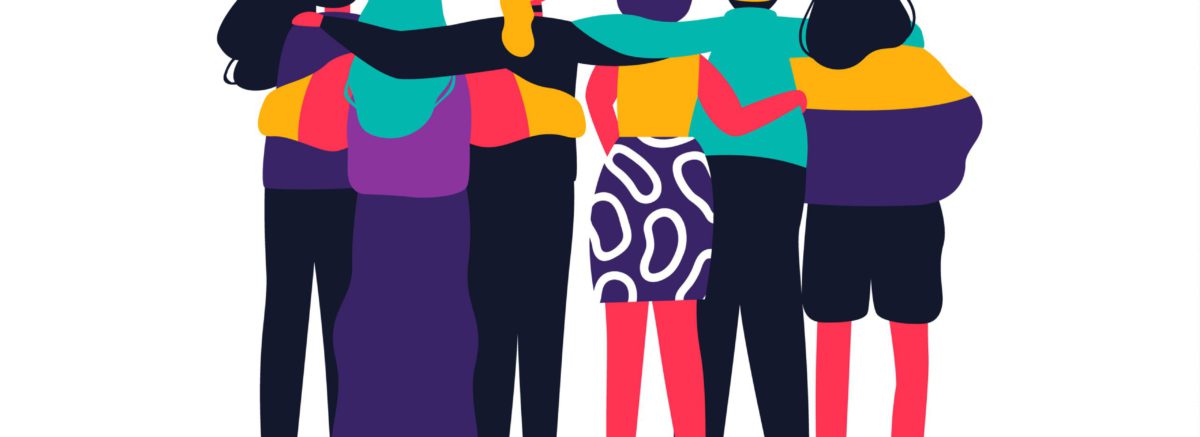“I have this recurring scene playing in my head – I’m walking alone on a dark road, and a man jumps out of the shadows and pins me to the ground. I try to scream, but nothing comes out…I try to move, but I’m frozen.”
Over the past decade of working in security, women from different corners of the globe have shared this exact nightmare during safety and self-defense workshops. These are usually narrated with a sense of urgency – voices filled with concern that this very scene could unravel on their commute home. By the end of the workshop, I saw women walking out confidently, with determined gazes, fully exercised vocal cords, excitedly chatting about who punched the bag harder. As I gathered my thoughts to write this blog, I had an epiphany. The teachings of the workshop did not drive their rediscovered confidence. What really happened is 20 women got together and shared their deepest fears. They believed each other’s stories, and cheered each other’s strengths. They exchanged practical safety tips and most importantly, reinforced the belief in their instincts.
So, this is the collective wisdom of, and tribute to, the hundreds of women I have had the opportunity to spend time with at these workshops, and the many more I hope to meet.
Learn to use your voice, literally
Many years ago, I joined a self defense workshop, conducted by a master instructor and champion of personal safety. On the way to the first class, I power walked out of the subway. Did lunges on the sidewalk and warmed up my shoulders, fully expecting a cardio-intense evening. To my complete surprise, we spent the session talking about a concept, which unfortunately, is alien to many – boundaries.
During an exercise, the instructor walked towards me, getting closer by the second. She told me to stop her when I felt uncomfortable. Sounded easy enough. Until, I had to use my voice – and hands – and tell her to STOP. Not just a high-pitched squeal from my throat, but a deep powerful sound from the pit of my stomach. Over the next several weeks, we practiced the verbal and physical components of self-defense. But, since then, I’ve never underestimated the power of my voice.
In every one of my women’s security workshops, we stood in a circle shouting “STOP”, “NO”, “GET AWAY”, with our hands outstretched, marking our personal space. In one session, a participant refused to believe she could project a loud voice. So, we stood facing each other, just the two of us. We shouted all the words we could come up with, in every language we knew. It created quite the kerfuffle in the office – but it was totally worth it. If you haven’t heard the power of your voice, give it a try (perhaps warn other members of the household first!).
Trust your instincts
We often throw around the word – instinct – as something mythical like fairy dust, lucky if you’ve been bestowed with it. But instinct is not a hunch or a wild guess. It is your brain’s process of making rapid risk assessments, signaling recommended courses of action. And more importantly, we all have it and we can sharpen it. These alerts are usually accompanied with physiological signs. The hair at the back of your neck stands up, your heart races and your stomach feels unsettled. So, despite your body and mind doing everything it can to warn you, why do we ignore or double guess it?
While this piece isn’t intended to be deep dive into human psychology (of which I’m definitely not an expert), let me say this – it is OK to leave your favorite bar because the vibe just isn’t feeling safe. It is OK if you take 10 minutes longer to get home because you took the well-lit path to your apartment. And it is most definitely OK to walk out on a date if you are concerned for your safety. You will never know how things would have turned out had you not listened to your instinct. But, you are safe, and that’s all that matters.
You don’t have to be ‘nice’ all the time
“Sugar and spice and everything nice, that’s what little girls are made of” – sound familiar? From the time we are little, there is an expectation for women to be ‘nice’. But it has creeped into and in some cases, taken over, our ability to defend ourselves. During workshops, I used to act out a scenario with participants that went like this: I’m a drunk co-worker in an elevator with you – no one else except for us – I decide to throw my arm around you, pulling you closer – what do you do?” I’m sure many of you are thinking, “what a jerk, I would push him away”. But when forced to act it out, it never ceased to surprise me when participants would say “please take your hand off”. Why are you politely requesting this aggressor to take his hand off you? His hand does not belong on your body.
It may also be time to start considering your action plan, depending on the situation. Perhaps get off at the next floor? Press the emergency button if he gets to close? How do you plan to get home and ensure he doesn’t follow you?
But, back to the concept of niceness – it is hard to shake off. I’ve caught myself faltering too. I once blurted “I’m sorry, I’ve got to go” when someone chased me down the street. He verbally harassed and cornered me for a phone number. I still have no idea what I was sorry for. Don’t get me wrong, I’m not advocating we start yelling at everyone in the streets. But, rather learn to accept that your safety is non-negotiable, and you don’t owe anyone an apology for that.
Never underestimate your strength
Whether it is physical strength, strength of spirit, or creative personal protection skills, never underestimate your ability to counter the threats you face. One of my participants shared a story. She was walking home after a girls night out, and a man grabbed her from behind, trapping her arms. Without missing a beat, she used her five inch heels and stomped into his feet – repeatedly – until he let go. She came home to find blood on her heels. It all happened so quickly. She never imagined she could fight back, as people had ridiculed her all her life of being ‘tiny’. If one strike against your attacker’s nose doesn’t work, go for another part of the body – do what it takes.
People often tell me that I don’t look like a security professional (my response is that we come in all shapes, sizes, genders and colors). They view me with skepticism during first encounters. It is undoubtedly frustrating when anyone undermines our strengths. But, let that be the fire that reminds you that you are your own strongest safety champion.
It is not your fault
It was 7am and I was walking home after a long overnight shift at work. A man came hurtling towards me on the sidewalk (the stench of alcohol preceded him) – I crossed to the other side and kept walking; he kept following. As I neared my apartment, he said – “Bitch, I just wanted to ask for directions”, followed by all a barrage of cuss words in an alarmingly high decibel level. I could see people peering out of balconies, pedestrians turning to look back, and cars rolling down windows to see what was going on. They were all staring at me, and I couldn’t help but feel like they were judging me i.e. “what could this woman have done to elicit such a verbal thrashing”.
During conversations with women who have been through devastating incidents of harassment, abuse and rape, many of them were ridden with guilt and shame, with members of their family, community and government taking every opportunity to say “you must have done something to prompt this attack”. Let’s be clear here – it is NOT YOUR FAULT – it doesn’t matter what time it was, what you wore or what you said. You did not ask to be violated. Period. I recognize this can be difficult to accept, especially when others whisper behind your back, gaslight you or outright pin the blame on you. But please know that there are women – and men – all around the world who believe you and your story.
So, where do we go from here? The threats around us are constantly evolving, and we need to stay ahead. The women in my workshops walked in hoping to learn from me, but I wish I told them how much I’ve learned from them. The lesson: always keep learning. Create safe spaces for conversations with other women, think through “what if” scenarios on a quiet day in the balcony, enroll in a self-defense class, talk to members of your community about personal safety – and above all, share your wisdom.
About The Author

Samyuktha Shenoy is a security advisor, who specializes in educating her clients on how to prepare for and respond to crises. The views expressed in this article are her own, and do not reflect those of her employer.
